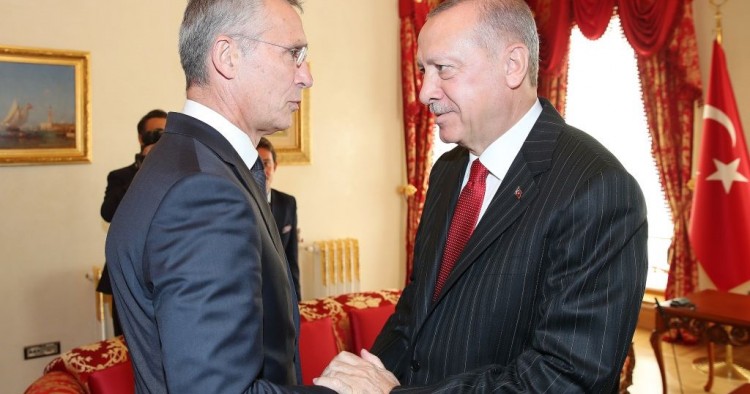NATO leaders will celebrate the 70th anniversary of their alliance in London on Dec. 3 and 4. Despite soft words from NATO Secretary-General Jens Stoltenberg, however, the alliance and Turkey are on a collision course. Turkey demands a full role in NATO’s decisions plus all the material and command benefits of a member, yet simultaneously binds itself to a resurgent Russia.
As expected, Ankara claims to be a victim of European and American opposition and modifies none of its behavior. Alliance security in the eastern Mediterranean is weaker than at any time since Turkey’s accession to the NATO Treaty. The Russians will certainly expand their military presence in Syria, including the port of Tartus. Very late, Turkey has realized the threat from Russia in the Black Sea; will it press forward with NATO or confine itself to rhetoric? Russia does Turkey no favors; Turkey’s efforts in recent years to extract concessions from Moscow to satisfy Ankara’s desire to maintain a presence and bases in Syria have come to naught. Russian S-400s, exactly like those in Turkey being tested today against American-built Turkish F-16 fighters, are arrayed in Kaliningrad against NATO’s northern tier.
In the NATO Treaty there is, under Article 4, the right of any member to convene the NATO Council to discuss a threat against any member state. Turkey’s actions with Russia constitute a clear threat to the security of the alliance’s members. Last April, Vice President Mike Pence spoke before NATO foreign ministers and plainly restated that threat. Will the Americans be willing to step forward to compel this discussion or is Mr. Pence’s statement simply more platitudes? The day is coming when NATO will have to confront this reality unless Turkey first grasps the gravity of its decisions.
Ambassador (ret.) W. Robert Pearson is a non-resident scholar at MEI.
Photo by Murat Kula/Anadolu Agency via Getty Images
The Middle East Institute (MEI) is an independent, non-partisan, non-for-profit, educational organization. It does not engage in advocacy and its scholars’ opinions are their own. MEI welcomes financial donations, but retains sole editorial control over its work and its publications reflect only the authors’ views. For a listing of MEI donors, please click here.













